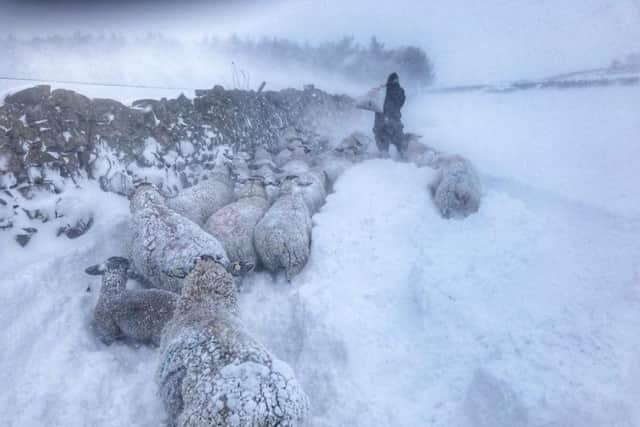Calls for ministers to help farmers facing impacts of climate change
The calls come after harvests of some of Scotland’s key crops were hit by extreme weather this year, including the Beast from the East and an unusually hot, dry summer.
Such events create multiple challenges for growers and livestock producers.
Advertisement
Hide AdAdvertisement
Hide AdOfficial figures show agriculture and related land use account for 26 per cent of Scotland’s annual greenhouse gas emissions. However, efforts to cut emissions have made little progress.


The latest report from the Committee on Climate Change, independent advisers to the Scottish and UK governments, warned that action must be stepped up if Scotland’s world-leading climate ambitions are to be met.
Farmers and environmentalists say “innovation” and “widespread change” are needed to safeguard food production in the future and to help achieve climate targets, and the Scottish Government must do more to help.
“Scotland’s farmers are on the front line of experiencing the impacts of climate change, but since agriculture is also a source of greenhouse gas emissions, farmers and crofters have an important role to play in reducing emissions,” said Andrew McCornick, NFU Scotland president.
“Reducing emissions in farming will not, however, be easy or immediate.
“It will depend on new innovation and the application of the latest science, and on achieving widespread change in practices in an industry made up of thousands of small businesses.
“The government will therefore have a key role in facilitating and supporting the industry in its efforts to reduce emissions. The Scottish Government puts great emphasis on leading the way in tackling climate change and it does already fund activity to help reduce emissions from farming, but there is so much more that it could do.”
This year’s harvest of barley – the country’s biggest crop – was affected by the difficult conditions, which caused a drop in the amount of cereals and oilseeds planted.
Advertisement
Hide AdAdvertisement
Hide AdProduction of winter barley decreased by nearly a quarter, while spring barley – the main ingredient in Scotch whisky –was down six per cent. Wheat yield fell by 16 per cent.
Scotland’s hill farmers also felt the impacts of climate change, with higher losses of sheep due to fodder scarcities.
Sheila George, food and environment policy manager at WWF Scotland, said: “We can no longer think about climate change as a problem other people are experiencing many miles away. It is happening right now in front of our eyes at home.
“There’s an urgent need for greater leadership and support from the Scottish Government to help farmers adapt and build resilience to climate change impacts in the face of increasingly extreme and unpredictable weather.”
In a recent report the Intergovernmental Panel on Climate Change warned that urgent, “game-changing” action on emissions is needed if the world is to keep warming below the 1.5C goal set out in the Paris Agreement.